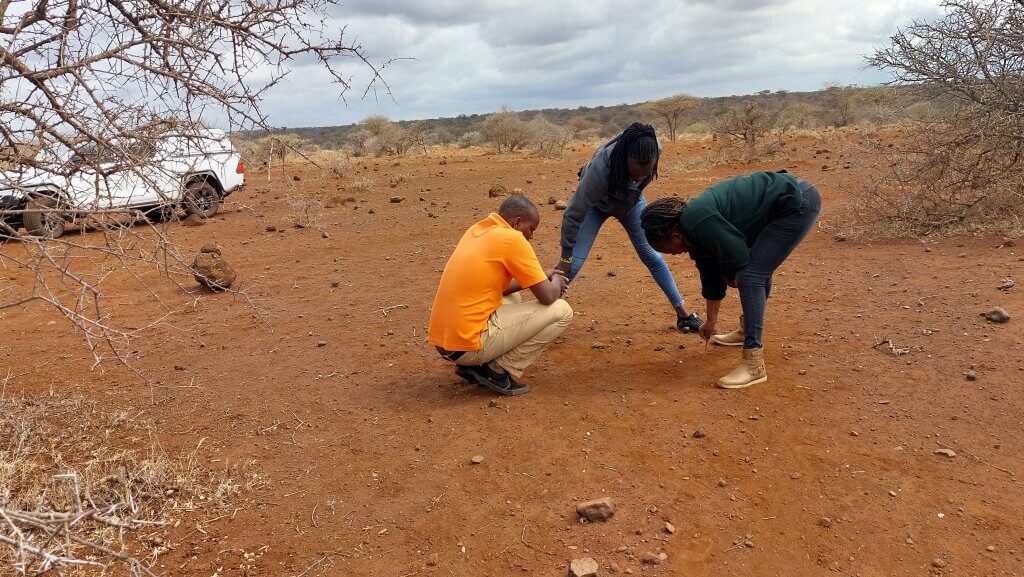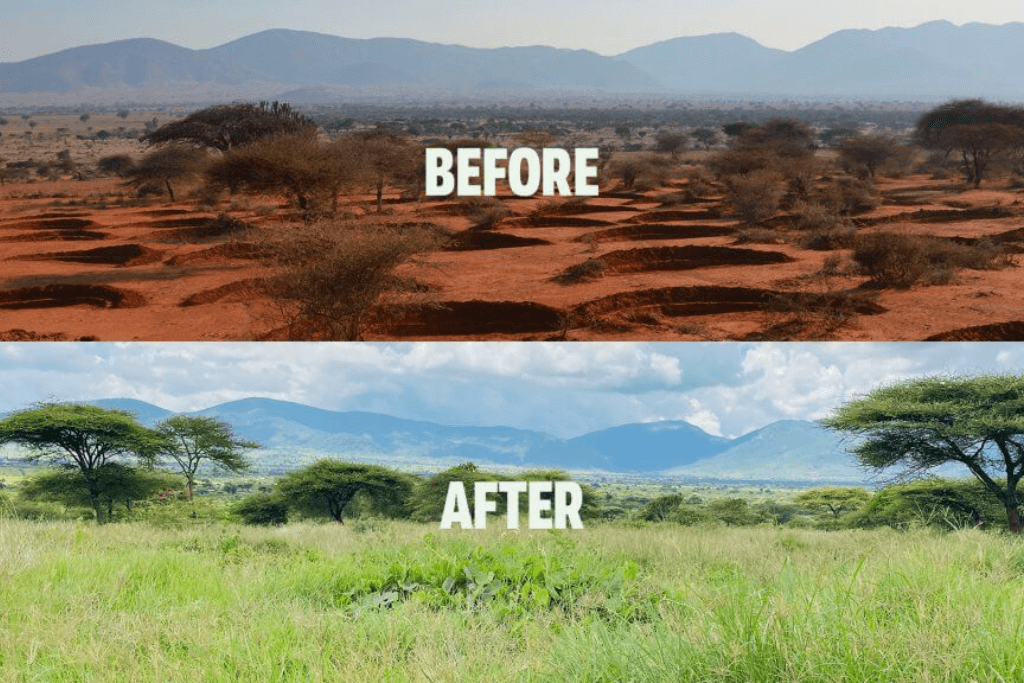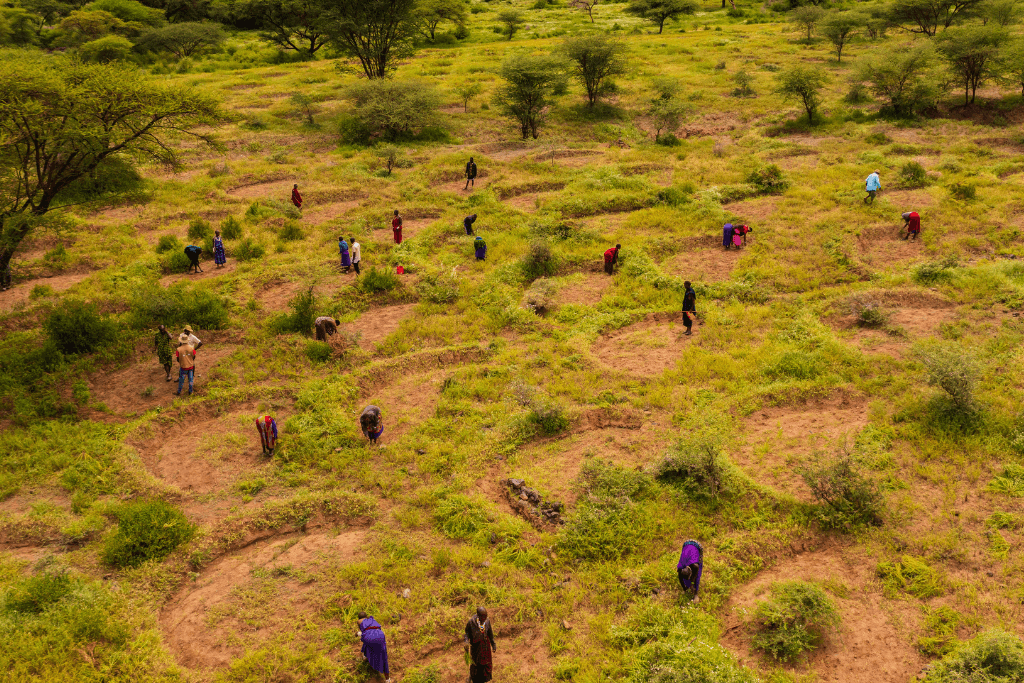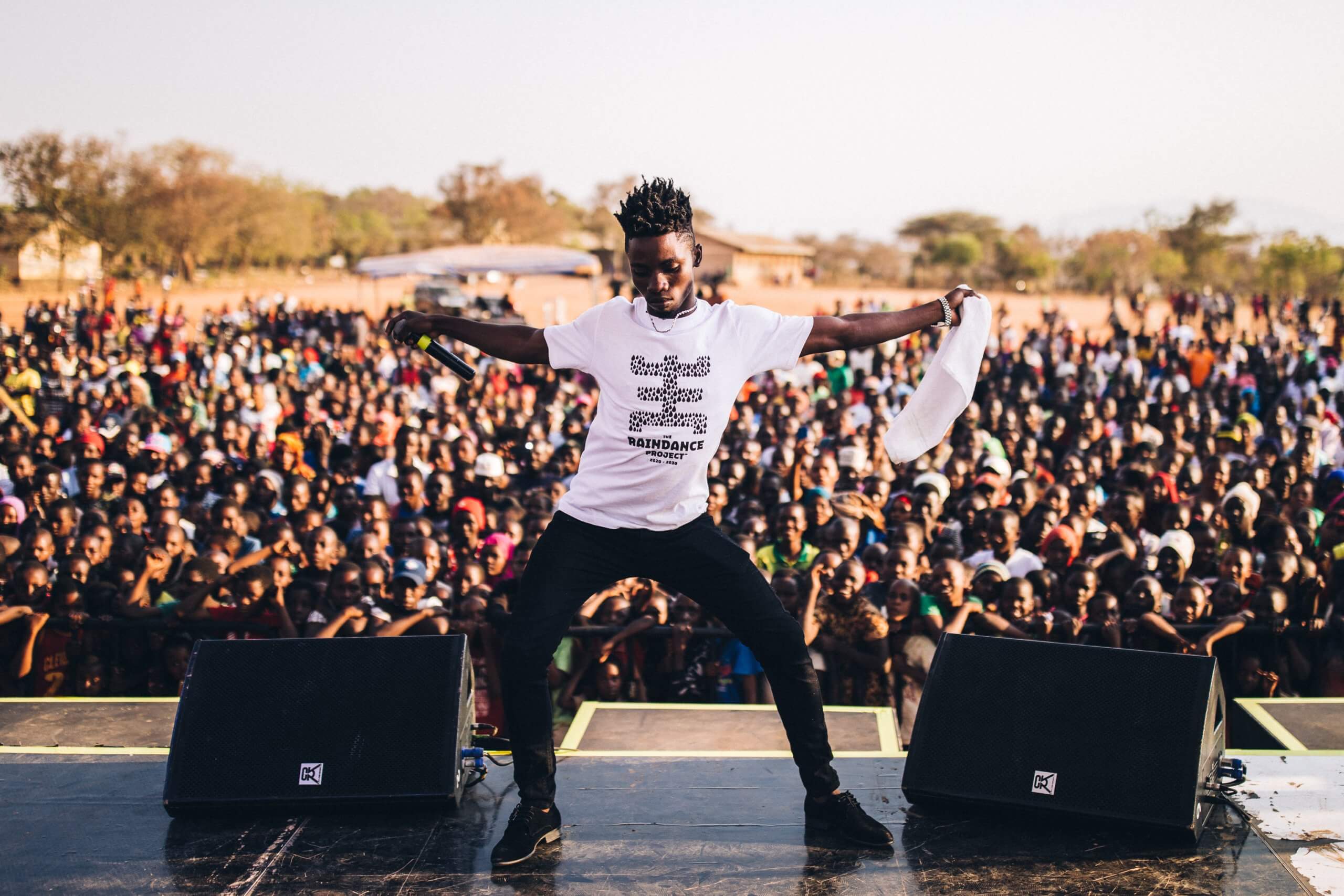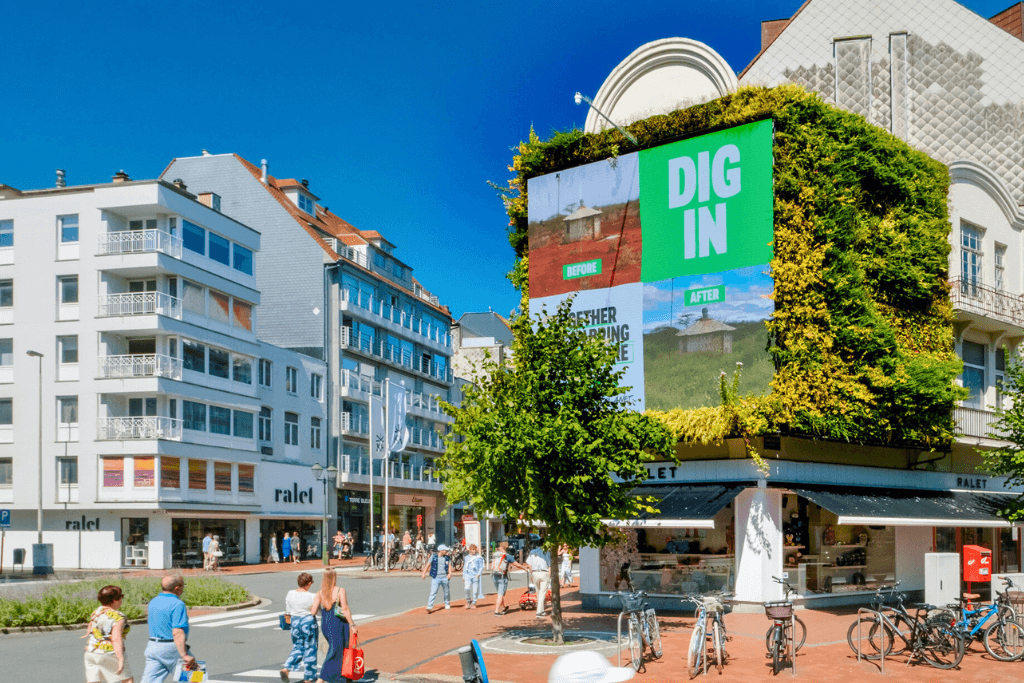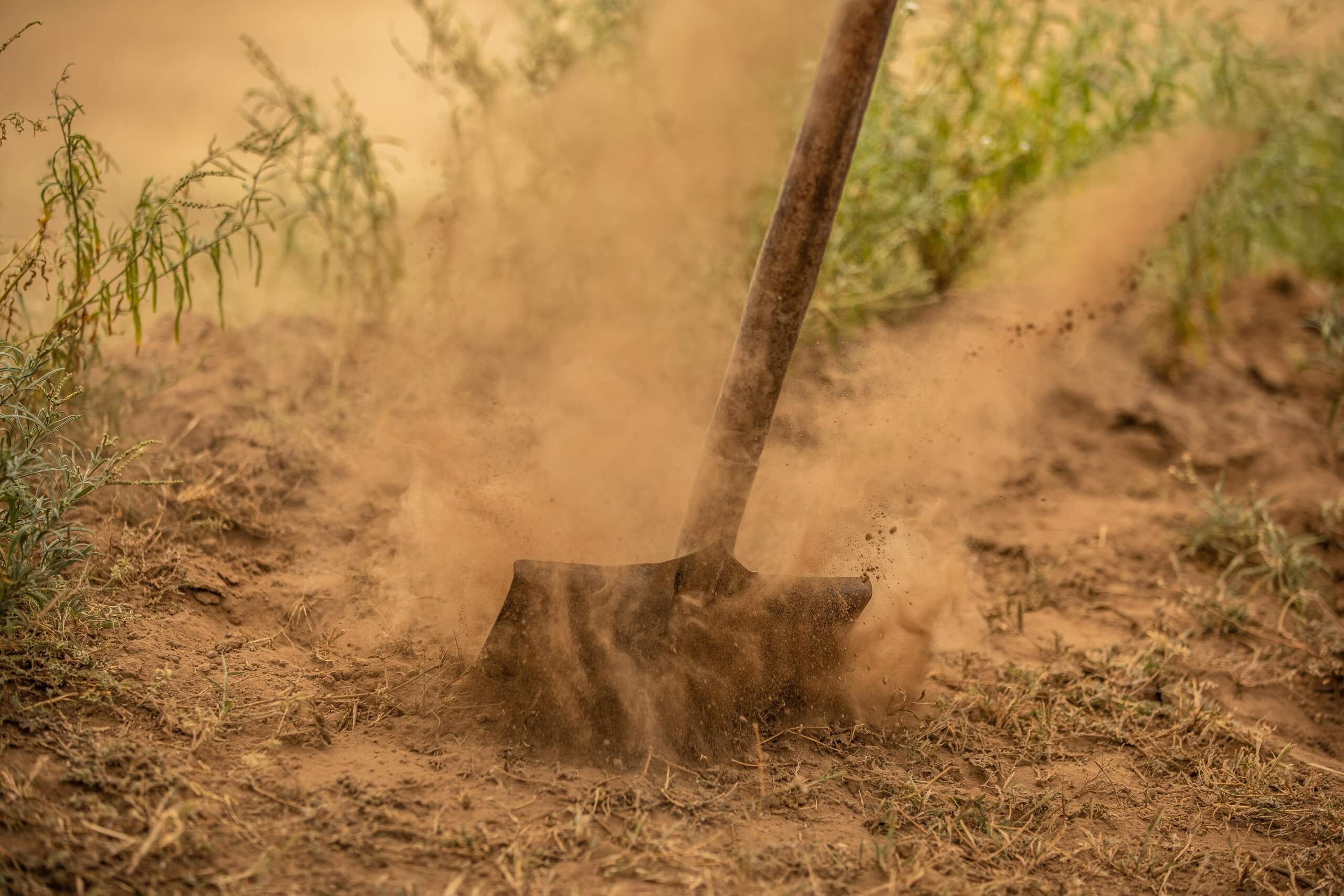Kuku/Iltilal – August 2024
Kuku/Iltilal Bund Site: An update from the field…
The inhabitants of the Kuku region have suffered severe and frequent droughts in the last few years. Wildlife and livestock have been the main casualties, leading to the loss of livelihoods for these pastoral communities. To restore the land, improve the livelihoods of the people and increase general resilience against these erratic weather conditions, the Kuku/Iltilal bund projects were put in operation.
Over 40k new bunds
The bund projects in Kuku and Iltilal show what can happen when people join forces and collectively decide to restore dry and degraded ecosystems. During the digging period in November 2023, 122 community members participated as diggers. With 60% of the participants being women, this has been a great opportunity to increase the likelihood of resilience of women in the area, who bear the responsibility of providing for the entire household during the dry seasons when men migrate in search of water and pasture. Through the bund digging, the participants have been able to generate vital income in the dry season to feed their families.
All the hard work of the community has not been in vain: a total of 41,800 bunds have been constructed in the past months!
The weather report
As you can imagine, successful results of rainwater harvesting techniques such as bunds depend on the amount of rainfall in the area. Water causes the seeds in the bunds to germinate, resulting in the return of perennial grasses and other vegetation.
The Kuku region experienced average rainfall during the rainy season of March and April. The rain fell in the span of weeks and resulted in the sprouting of vegetation inside and outside the bunds.
Indigenous seeds
All of the bunds have been seeded with seeds that are indigenous to these rangelands and are bought from the grass seed banks projects that run in the area. These grass seed banks are owned and led by women from the Maasai community. They are created to generate additional income for them and to increase the availability of native seeds that are well-suited to the area.
As you can see in the photo below, the seeds in the bunds sprouted and grass coverage was present during our monitoring visit in May 2024.
Protecting the bund sites
The sprouting grasses are very vulnerable while they’re still young and need to be left alone to grow. That’s why rangers are an essential part of the regreening process: apart from preventing illegal activities such as poaching, they guard the sites so that the sprouting grasses have time to grow. In Kuku and Iltilal, 8 rangers from the community are currently guarding the bund sites.
Rangers are trained to keep an eye out for any signs of grazing inside the bund sites, as overgrazing is amongst the main causes of land degradation. The term is used when wildlife or livestock excessively feed on pasture and the vegetation does not get enough time to recover. Grazing committees, consisting of respected community elders, are important to prevent overgrazing because they help establish Olopololis plots: marked areas of communal land where grazing is only allowed during specific periods, such as at the end of the dry season when there are fewer other places to graze or only for certain animals such as calves.
What’s next?
Regreening is done together. That’s why we’re always looking for new ways to increase community involvement in our projects. In Kuku and Iltilal, plans are in place to deal with the invasive species through community engagements. This coming together to remove the weeds will boost community involvement and project ownership.
